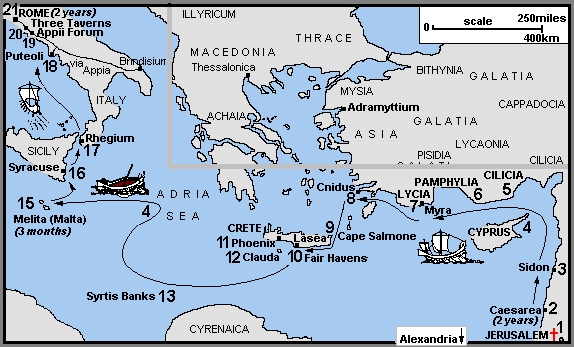by Becky
LINK: Romans 4BACKGROUNDPaul continues to explain God's eternal plan for people's salvation. It is a plan based on God's righteousness, not ours. Paul uses Abraham, the father of the Jews, to explain that it wasn't because of what Abraham
did that he was counted righteous, but because of faith in God's promise - faith in God's righteousness.
The followers of Jesus, Christians, began mainly as an outgrowth of Judaism. Most of the first believers were Jews. Presumably the church in Rome, to whom this letter was originally written, began in the Jewish community there. But as time went on, more and more Gentiles (people who weren't Jews) believed. This inevitably led to some conflicts, as we saw in Acts. Some of the Jewish believers felt that the Gentile believers should be circumcised, an outward sign of being part of God's covenant community.
Paul takes their premise, the basis of their understanding, and turns it on end. He shows here that Abraham believed God's promise (had faith)
before he was circumcised. His circumcision (an action - something Abraham did) came
after he believed, as an outward sign of his faith. Paul clarifies we are made right with God not because we've earned it through anything we've done, but because of what Jesus did. It is because of Jesus' righteousness that we are considered righteous. That is the meaning of that big word
imputation that Carol mentioned yesterday:
"And to the one who does not work but
believes inhim who justifies the ungodly, his faith is counted as righteousness." (v 5)
Imputation means to be counted or declared righteous, not because of our own merit or goodness or actions, but because of Jesus' merit and goodness and action - His death and resurrection.
REFLECTIONThis is not a dry doctrinal passage!
Abraham, the father of the Jews, is the father of all who believe God's promise. God promised Abraham that he would be the father of many nations. Abraham knew his God. He knew that the God he trusted was the Creator of all that exists - the God who makes something out of nothing and who gives life to the dead. Abraham's faith in God's promise didn't waver when he looked at the circumstances of his own life - his age, the years of barrenness.
Why not?
His faith didn't waver because he was "fully convinced that God was able to do what he had promised."
"That is why his faith was 'counted to him as righteousness.'"
"But
the words 'it was counted to him' were not written for his sake alone, but for ours also. It will be counted to us who believe in him who raised from the dead Jesus our Lord,
who was delivered up for our trespasses and raised for our justification." (vv 21-25)
APPLICATIONDepending on what we do (our works) for our righteousness leads to two errors. We either become proud or we feel defeated.
Abraham could have focused on himself and his circumstances - an old body, a barren wife, time that went on and on without the fruition of God's promise. But he didn't. He focused on God. He knew his God. He was fully persuaded that God was able to do what He'd promised.
What are you focusing on? Do you still think that it is what you do that makes you righteous? Focus instead on the Lord Jesus. He died for us that we might live. His resurrection from the dead is the promise that we are made right with God - just as if we'd never sinned!
Do you know the Lord? Are you fully persuaded that He is able to do what He's promised?
PRAYERFather God, thank you for your grace and love and mercy. We are truly blessed if we trust you. We have no weight of guilt or shame or sin to deal with; we don't have to worry about being good enough to please you. We thank you that in your righteousness and love you provided the way for us to be righteous. Thank you that you came in the flesh, in the person of Jesus Christ, to die and rise again for us. Help us to trust you and your work for us.
